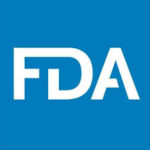The following is the latest COVID-19 information from the Pennsylvania and federal governments and others as of 4:00 p.m. on Thursday, April 16.
Pennsylvania Update
 Daily COVID-19 Briefing
Daily COVID-19 Briefing
- The number of new COVID-19 cases has remained relatively steady for the past four days and well below where it was a week ago.
- But the death toll remains higher than it has been in Pennsylvania for most of the past month.
- 1401 people with COVID-19 are health care workers.
- 2503 COVID-19 patients are currently in hospitals, 664 of them on ventilators.
- As of today, 41 percent of the state’s acute-care hospital beds and 37 percent of its ICU beds are unoccupied and nearly 70 percent of its ventilators are not currently in use.
- The state is now providing negative test result numbers on a county-by-county basis; included in those figures are gender breakdowns.
- While race and ethnicity data remains elusive, the Department of Health is working on this providers and is now presenting data on positive test results and deaths by race (scroll down about halfway).
- The state will not give retailers more time to comply with the new requirement that employees and customers all wear masks.
- The Department of Health recommends that people riding public transportation wear masks but is not requiring it.
- When asked, Secretary Levine would not reject the possibility of some form of stay-at-home requirement extending into the fall but reiterated her past explanation that the disease will determine the time line.
Department of Human Services
DHS has updated its guidance on the use of the CR modifier and the DR condition code for COVID-19 disaster/emergency-related claims.
Department of Health
The federal Department of Health and Human Services Office of Civil Rights has resolved a civil rights complaint against Pennsylvania over complaints that the state’s interim Pennsylvania Crisis Standards of Care for Pandemic Guidelines would discriminate against the disabled if the state needed to begin triaging access to critical care and ventilators. Pennsylvania has revised those standards to the Office of Civil Rights’ satisfaction.
Department of State
The Department of State has expanded “clinical clerk” services during the COVID-19 emergency. Under ordinary circumstances, clinical clerks may serve only patients in hospital settings. Under this waiver, clinical clerks will be assigned to work in hospitals but may provide services by phone to other health care settings. The objective of this change is to facilitate the use of medical students as clinical clerks with the understanding that they will work under the supervision of MDs and DOs.
Federal Update
 Department of Health and Human Services
Department of Health and Human Services
- HHS has established a portal for recipients of CARES Act funding designated for hospitals and health care providers to attest to their acceptance of the terms and conditions of these grants. Recipients must complete this attestation within 30 days of receipt of a grant.
Centers for Medicare & Medicaid Services
- CMS has updated its list of blanket waivers for health care providers. CMS updates this document regularly, with the latest update including changes in Medicare reimbursement for acute-care hospitals, long-term care hospitals, and inpatient rehabilitation facilities required by the CARES Act.
Federal Emergency Management Agency
- FEMA, working with the Department of Health and Human Services through the FEMA Healthcare Resilience Task Force, has developed a “COVID-19 Hospital Resource Package” that addresses such issues as hospital surge, crisis standards of care, staffing surge and resilience, workforce protection, regulatory relief, equipment supply surge, and telemedicine.
Food and Drug Administration
 The FDA has published guidance for a temporary policy for the compounding of certain drugs for hospitalized patients by outsourcing facilities during the COVID-19 emergency.
The FDA has published guidance for a temporary policy for the compounding of certain drugs for hospitalized patients by outsourcing facilities during the COVID-19 emergency.- The FDA has published guidance on its enforcement policy for digital health devices for treating psychiatric disorders during the COVID-19 emergency. The purpose of this policy is to reduce direct contact between providers and patients.
- The FDA has published an overview of its response to COVID-19, summarizing the information resources it has prepared, its work involving medical products and therapeutics, and the guidance policies it has published.
- The FDA has issued an emergency use authorization (EUA) for two specific commercial serology tests to detect the presence of COVID-19 antibodies. Those EUAs can be found here and here.
- The FDA has issued an EUA for the emergency use of a specific commercial product for use in decontaminating compatible N95 and N95-equivalent masks for single-user reuse by health care personnel.
- The FDA has updated its FAQs on home-use blood glucose meters used within hospitals during the COVID-19 pandemic.
- The FDA is calling on people who have recovered from COVID-19 to donate plasma to be used in the development of blood-related therapies. Convalescent plasma is an antibody-rich product that is thought to limit the severity or shorten the length of illness caused by COVID-19.
Centers for Disease Control and Prevention
- The CDC has updated its interim guidance and resources for laboratory professionals working with specimens from persons under investigation for COVID-19.
- The CDC has collected and updated various resources for hospitals and health care professionals preparing for patients with suspected or confirmed COVID-19.
National Institutes of Health
- The NIH has announced that its own study has validated three methods for sanitizing N95 masks for reuse.
Industry Groups
- The American Medical Association and American Hospital Association have prepared their own guidance for physicians working at home during the COVID-19 pandemic.
Resources to Consult
Pennsylvania Department of Human Services
Pennsylvania Department of Health
Centers for Disease Control and Prevention
(To receive this daily update directly, sign up for our mailing list at info@pasafetynet.org.)